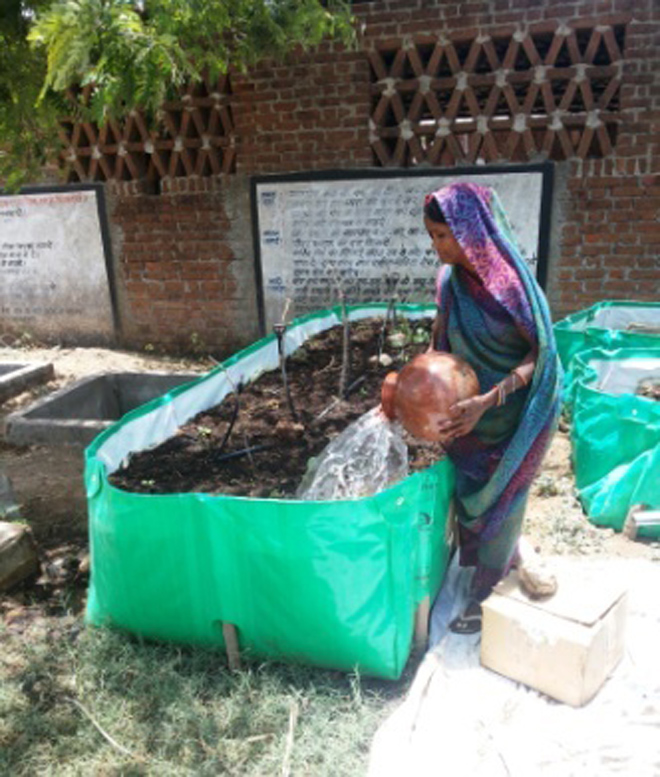|
Vermi-Composting: A Green
Enterprise A griculture is the primary occupation for more than 70% of India’s population. Use of chemical fertilisers to increase crop productivity not only degrades the soil quality but also leads to several types of health hazards. Organic farming is the key to achieving agricultural sustainability. Vermi-composting is one of the most important components of organic farming and a remunerative enterprise for the farmers. In nature, all organic matter eventually decomposes but during the process of making vermi-compost the decomposition process is fast which results in a worthwhile end product i.e. vermi-compost. Commercial vermi-composting includes rearing of earthworms and production of earth worms casts. These earthworms keep multiplying so an entrepreneur does not need to invest in buying them again and again.Vermi-compost unit in Orchha, Bundelkhand In 2014, with support from Development Alternatives, this initiative to create wealth from waste was taken up in Bundelkhand by a women’s federation – Sankalp Swashakti Mahila Mandal. They started producing vermi-compost by demonstrating a low cost technology in the form of tetra vermi bed. These beds are low cost, require very little space and produce good quality organic manure which can be used anywhere from farm lands to nurseries and private gardens. As the only raw material used is animal or agriculture waste, there is very little investment cost resulting in high profit margins. Members of the women’s federation have been trained to produce the vermi-compost and are also engaged in value chain development i.e. production and marketing of their product. In the villages, as women are usually involved in activities of animal husbandry during their daily work, running a vermi-compost unit becomes a complementary activity transforming their daily non-paying work into a profit making green enterprise. The women’s federation produces 500 quintals of vermi-compost in one cycle of 45-60 days and makes a profit of Rs. 2, 00,000. This compost is bought by various orchard farmers for their guava, amla (gooseberry) and mango plantations, nursery owners and women vegetable farmers around Orchha resulting in an increased and good quality production of fruits and vegetables. This low cost model of income generation solves the dual purpose of boosting the rural economy as well as promoting sustainable food production in various fruit and vegetable plantations around Orchha. Vermi-composting has a huge potential to meet the increasing demand of food worldwide which is produced organically. As a green rural enterprise, it is easy to start as it needs nothing from outside except the earthworms for the beginners. q Omkar Gupta
|
